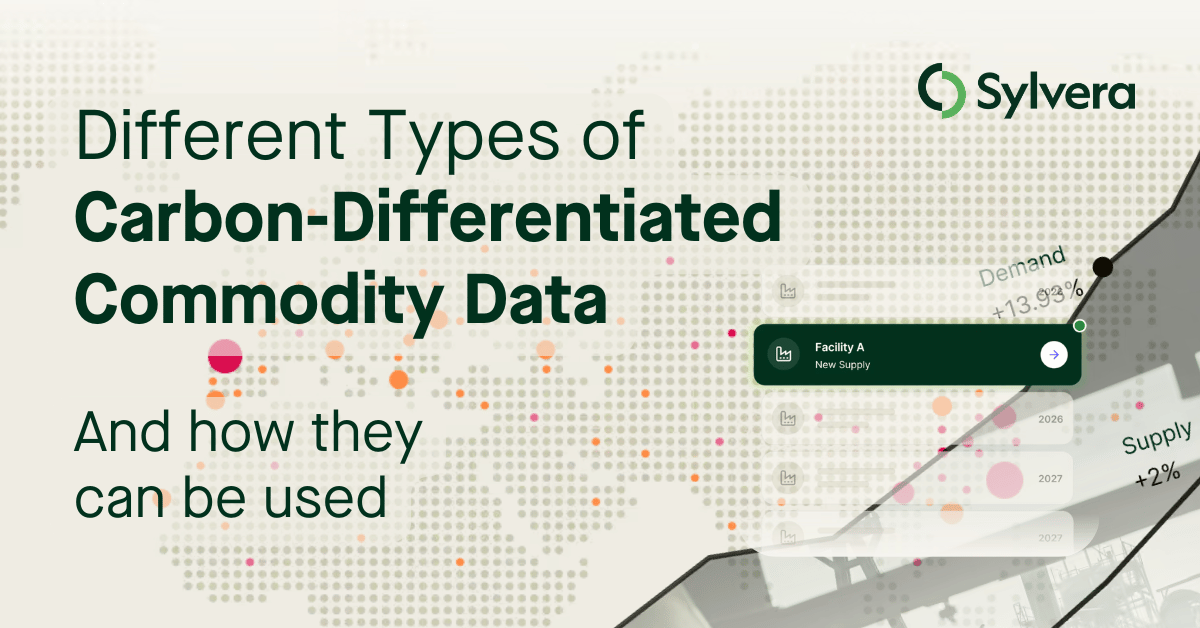“Over the years we’ve invested significantly in our field data team - focusing on producing trusted ratings. While this ensures the accuracy of our Ratings, it doesn’t allow the scale across the thousands of projects that buyers are considering.”
For more information on carbon credit procurement trends, read our "Key Takeaways for 2025" article. We share five, data-backed tips to improve your procurement strategy.

One more thing: Connect to Supply customers also get access to the rest of Sylvera's tools. That means you can easily see project ratings and evaluate an individual project's strengths, procure quality carbon credits, and even monitor project activity (particularly if you’ve invested at the pre-issuance stage.)
Book a free demo of Sylvera to see our platform's procurement and reporting features in action.
At the end of August, John Oliver ran a segment on his HBO show Last Week Tonight lambasting carbon offsets and the corporations that use them to make ostentatious climate claims in their marketing. It’s no surprise that it was widely shared among the sustainability sector, attracting vocal supporters and critics of his stance, which is simply put: offsets are BS.
Did we think it was funny? Yes. Did we think it was accurate? Mostly. Did we think it was balanced? Not at all.
One more time for the people in the back: offsets are one of many legitimate tools for achieving net zero
While all companies need to cut emissions urgently, most cannot fully decarbonize right now. It’s technically and financially impossible in the short-term. (See GHG abatement cost curve below.) Therefore, offsets are a powerful tool at our disposal today that we can use to drive action, while we wait for new decarbonization solutions to be developed and scaled. As expected, high quality credits usually come at a higher cost. Companies that do their homework should be much more willing to pay a premium to guarantee impact and avoid being called out for greenwashing.

Integrity goes both ways
The segment highlighted the importance of both supply-side and demand-side integrity. When it comes to demand-side integrity, it’s essential that people examine what offsets are being used for. As proponents of the mitigation hierarchy, we believe organizations should only buy offsets to compensate for emissions in the short-term while they actively work to decarbonize. In the long-term, offsets should be viewed more like a carbon tax for unmitigated emissions as opposed to a get-out-of-jail-free card.
For everyone’s sake, buyers need to up their game. Companies must build ambitious climate plans and adopt meticulous due diligence processes to guarantee all their climate-related activities – including buying carbon credits – are effective and legitimate.
When it comes to supply-side integrity, it’s essential to evaluate how credits are generated and supplied to the market, which isn’t necessarily a simple task. As the segment highlights, the voluntary carbon markets are incredibly complex, made up of different frameworks and project types. The work we do at Sylvera is in service of achieving supply-side integrity, so that the VCMs can be easily understood and trusted. More on this below.
Consistent and reliable data: the key to supply-side integrity
John Oliver’s segment called out some specific projects and dodgy practices, all of which underscores the reason why ratings platforms like Sylvera exist: to bring trust and transparency to carbon markets. We don’t believe all carbon credits are bad or fraudulent, like Oliver implies. But we agree that historically the data around carbon credits has been extremely flawed. Thanks to innovations in technology and science, we can now validate the quality of projects with tremendous accuracy. This is exactly what Sylvera does. Using machine learning, advanced data analysis and satellite imagery, we interrogate project quality, drilling down into Carbon Performance, Additionality, Permanence and Co-benefits. We spend 60-120 hours to develop, test and QA ratings for every individual project, so buyers can trust that our data and insights are accurate and reliable.
Optimistic takeaway
Oliver’s reach and mainstream appeal mean that there is the potential that this segment could turn off a lot of people and companies (especially those who already have doubts) from offsetting entirely. However, we think the more likely outcome is that rather than avoid them altogether, companies will double down on their due diligence, which is a win-win for everyone involved. In pursuit of transparency, efficacy, and brand security, buyers will seek out high quality projects. Eventually enough capital will flow to good projects and away from bogus ones, which should increase the integrity of the VCMs, and ultimately help us in the biggest battle of our lifetime.



.avif)






.png)
